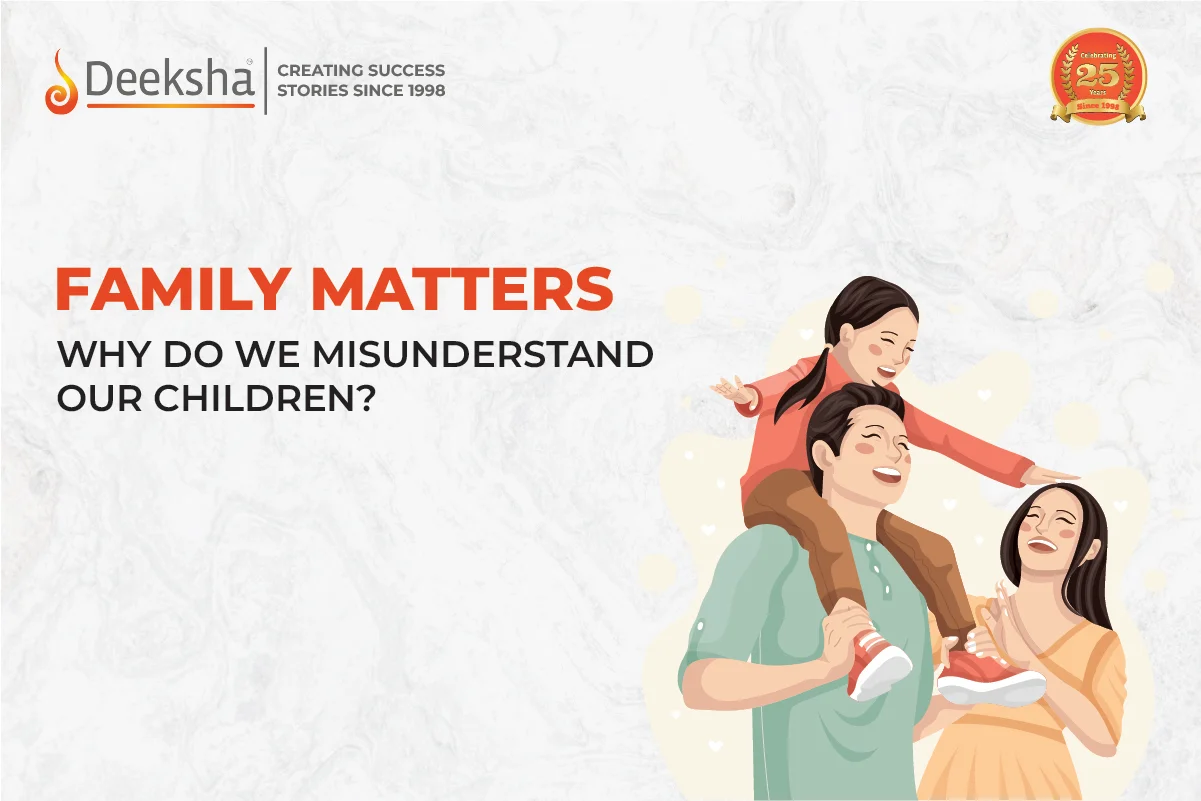One of our primary goals as responsive parents is being attuned to our children and their needs; it’s helpful to be aware of a natural impulse that obstructs this clarity: projection. Projections aren’t all bad. These “educated guesses” stem from our healthy, socially adaptive instinct to imagine each other’s thoughts, feelings and intentions in order to relate and connect. Projections are sometimes accurate, but more often than not they are at least a little off track because they are more reflective of our own thoughts and feelings than those of the person we’re projecting about, even our children.
We project most when our children can’t share what they are thinking. We forget to realize that children are constantly learning more about the world and themselves every day and sometimes, we tend to force things on them. The following are some ways in which we misunderstand our children and thus, create a drift between our parent-child relationships.
1. We expect children to be able to do things before they are ready.
We ask children to do things well before they are capable of doing it. We expect them to learn things without even teaching them how to do it. We are setting ourselves up for disappointment and setting up the child for repeated failures to please us. Yet many parents ask their young children to do things that even an older child would find difficult. In short, we ask children to stop acting their age.
2. We become angry when a child fails to meet our needs.
A child can only do what he/she can do. If a child cannot do something we ask, it is unfair and unrealistic to expect or demand more, and anger only makes things worse. We expect children to act beyond their age, most of the time. To expect more is unrealistic and unhelpful. There are limits to what a child can manage, and if we don’t accept those limits, it can only result in frustration on both sides.
3. We forget how deeply blame and criticism can hurt a child.
As parents, we tend to blame our children and even yell at them for many things. Many parents are coming to understand that physically hurting a child is wrong and harmful, yet many of us forget how painful angry words, insults, and blame can be to a child who can only believe that he/she is at fault. The downside, in this case, is that children, more often than not, don’t know how to deal and cope with this mental pain and end up repressing it.
4. We forget that our behavior provides the most potent lessons to the child.
It is truly “not what we say but what we do” that the child takes to heart. A parent who hits a child for hitting, telling him that hitting is wrong, is in fact teaching that hitting is right, at least for those in power. It is the parent who responds to problems with peaceful solutions who is teaching his child how to be a peaceful adult. So-called problems present our best opportunity for teaching values because children learn best when they are learning about real things in real life.
5. We see only the outward behavior, not the love and good intentions inside the child.
When a child’s behavior disappoints us, we should, more than anything else we do, “assume the best”. We should assume that the child means well and is behaving as well as possible considering all the circumstances, whether obvious or unknown to us, together with his/her level of experience in life. If we always assume the best about our child, the child will be free to do his best. If we give only love, love is all we will receive.
6. We don’t allow children to be children.
We somehow forget what it was like to be a child ourselves, and expect the child to act like an adult instead of acting his age. A healthy child will be rambunctious, noisy, emotionally expressive, and will have a short attention span. All of these “problems” are not problems at all but are in fact normal qualities of a normal child. Rather, it is our society and our society’s expectations of perfect behavior that are abnormal.
In the end, parents only want the best for their children. As much as we try to raise them into healthy individuals, we often tend to neglect how children are young and need guidance instead of criticism from our side. Our perceptions coupled with societal expectations makes us believe that our child is not growing up the right way when he/she might be doing just that; growing up in his/her own way by learning and acquiring things on their own.
The best we can do is be supportive and guide them, understand their mistakes and realize that life is a learning curve and we ourselves are not perfect enough to help our child become a “perfect” individual.


![Karnataka 2nd PUC Result 2024 [Live Updates]](https://deekshalearning.com/wp-content/uploads/2024/04/Karnataka-2nd-PUC-Result-2024-500x383.webp)


Get Social